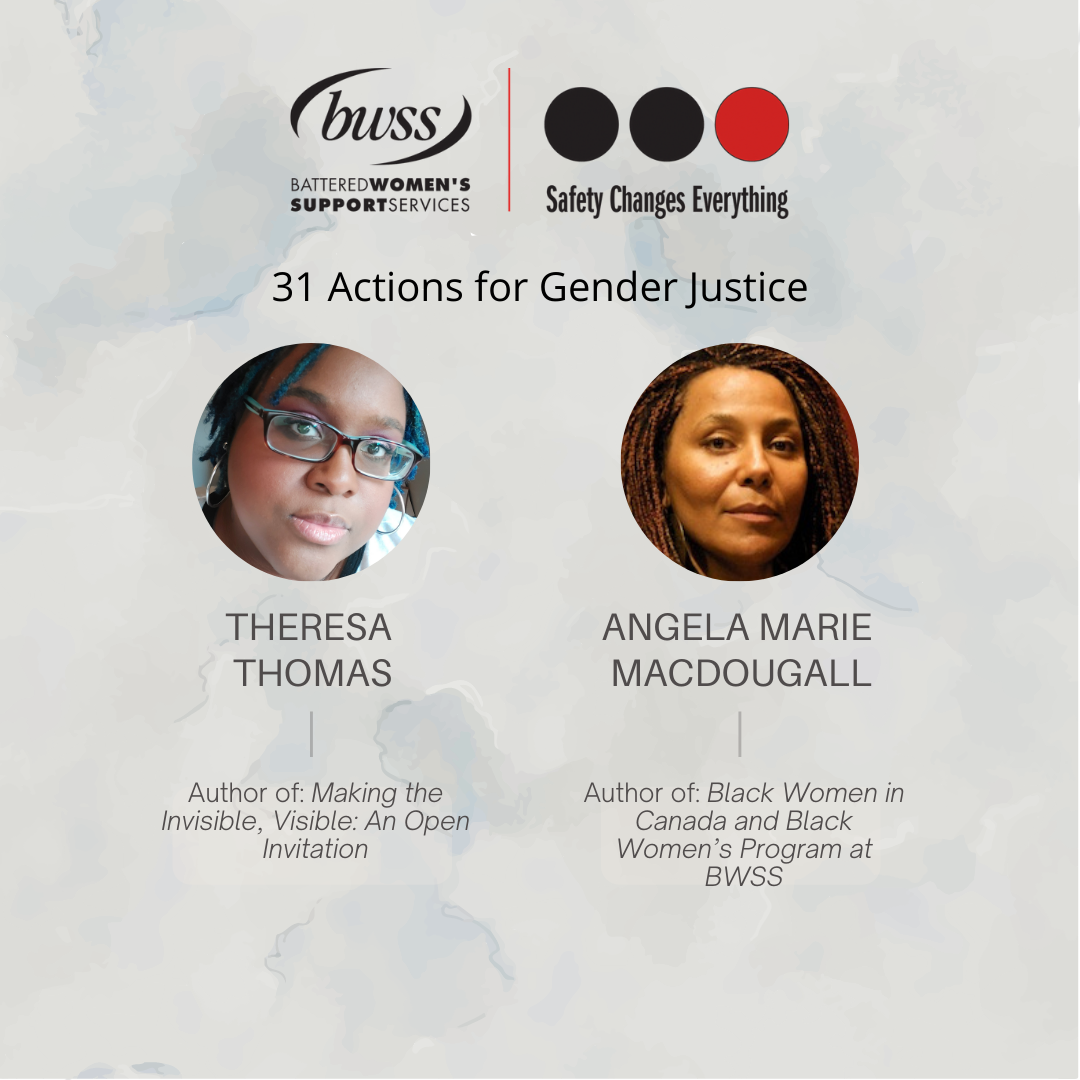We’ve created 31 Actions for Gender Justice to raise awareness, spark conversations and take action that transforms gender and power relations, and the structures, norms and values that underpin them. Every day for the month of March we will highlight an action that advances gender equity and justice for International Women’s Day (IWD).
Recommended Reading
31 Actions for Gender Justice: Day 9
In 2008, a motion to recognize February as Black History Month in Canada was unanimously approved in the Senate. But the contributions of Black people in Canada dates back to the early 17th century when a free black person, Mathieu da Costa, arrived in what we know today as Canada.
We invite people of all backgrounds to learn about the rich history of Black people in Canada and the importance of seeing colour to understand–not to encourage prejudice-Black people’s experiences and challenges.
We recommend reading:
Making the Invisible, Visible: An Open Invitation by Theresa Thomas MCP, RCC in commemoration of February as Black History Month.
Theresa was born and raised in Houston, Texas. She is committed to helping people achieve freedom from systemic and societal oppression in every capacity. Since moving to Vancouver in 2012, she has been focused on learning the origins and impacts of trauma.
Theresa’s therapeutic focus is on trauma intervention, freedom from abuse, substance misuse, and achieving empowerment using largely narrative therapeutic techniques.
Theresa has an MCP in Counselling Psychology and is currently an STV counsellor at Battered Women’s Support Services, and coordinates the BWSS Black Women’s Program.
Black Women in Canada and Black Women’s Program at BWSS by Angela Marie MacDougall, Executive Director, BWSS.
Through her community-based organizing, frontline work, and activism over three decades, Angela Marie MacDougall has been deeply involved in movements for social justice. Since the nineties, Angela has developed training curricula from an intersectional and anti-oppression framework while her work as a trainer with community-based organizations, systems players, universities and in the larger public sphere has always emphasized the influence of a community-based response toward gender, racial, economic justice.
Angela Marie MacDougall has edited and/or written ten manuals on addressing gender-based violence and violence against women from an intersectional anti-oppression feminist framework and has spoken to hundreds of groups throughout Canada, the United States and in China. An ever-present theme and focus of her work has been the range of social inequities and environmental problems associated with colonialization and the generalized criminalization of communities of colour that are most affected by poverty and racial discrimination.
Her parents met in the Black community known as Hogan’s Alley that in the seventies was razed by Vancouver City Hall, so her work grows directly from her own experiences as a bi-racial Black woman who grew up amongst violent racist misogyny both at home, at school and in the larger community while and she became politicized to end violence against women after her high school friend was raped and murdered while on a date. She also has conducted extensive participatory action research on numerous aspects relating to gender, race, and violence.
Angela Marie MacDougall is a founding member of Feminists Deliver a provincial organization dedicated to shedding a light on the urgent issues facing marginalized communities in British Columbia and the grassroots struggles leading the way for transformative change while build transnational connections between grassroots intersectional feminist movements; and re-envisioning the global women’s agenda as one that centers a diversity of grassroots intersectional feminist voices. She is a long-standing member of Vancouver’s February 14th Women’s Memorial March, the first women’s memorial march was held in 1992 in response to the murder of a woman in the Vancouver neighbourhood named the Downtown Eastside. Angela is a founding member of Intersectional Feminist Justice Research and Organizing Collaborative that brings together researchers, academics, data and policy analysts, students and community organizers to provide critical research, data, policy and strategic support for ending violence, gender equity and social justice movements. Ms. MacDougall was named a Remarkable Woman by the City of Vancouver and Vancouver Magazine named her one of Vancouver’s most powerful people.





